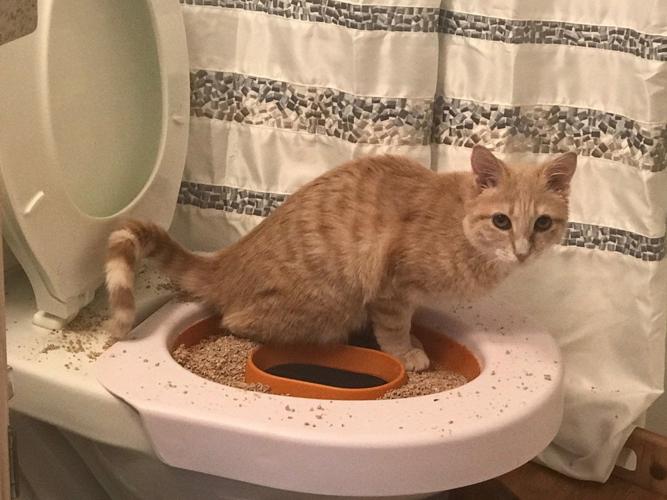Reasons You Shouldn't Flush Cat Poop Down Your Toilet - Preserve Your Plumbing Health
Reasons You Shouldn't Flush Cat Poop Down Your Toilet - Preserve Your Plumbing Health
Blog Article
They are making a number of good points regarding Can You Flush Cat Poo or Litter Down the Toilet? as a whole in the content on the next paragraphs.

Intro
As feline proprietors, it's necessary to bear in mind how we dispose of our feline pals' waste. While it might appear convenient to flush cat poop down the bathroom, this method can have destructive effects for both the environment and human health.
Alternatives to Flushing
Thankfully, there are safer and much more responsible ways to deal with cat poop. Consider the adhering to choices:
1. Scoop and Dispose in Trash
The most common approach of disposing of pet cat poop is to scoop it into a naturally degradable bag and throw it in the trash. Be sure to make use of a committed trash inside story and take care of the waste without delay.
2. Use Biodegradable Litter
Select eco-friendly feline clutter made from materials such as corn or wheat. These clutters are environmentally friendly and can be safely gotten rid of in the trash.
3. Hide in the Yard
If you have a yard, consider hiding cat waste in a designated area away from vegetable gardens and water sources. Make sure to dig deep sufficient to avoid contamination of groundwater.
4. Set Up a Pet Waste Disposal System
Purchase a family pet garbage disposal system particularly developed for cat waste. These systems use enzymes to break down the waste, reducing smell and ecological impact.
Health Risks
Along with environmental concerns, purging feline waste can additionally present health threats to people. Pet cat feces may contain Toxoplasma gondii, a bloodsucker that can cause toxoplasmosis-- a possibly extreme disease, specifically for pregnant ladies and people with weakened immune systems.
Ecological Impact
Purging cat poop introduces dangerous pathogens and parasites into the water system, posturing a significant danger to water ecological communities. These contaminants can negatively affect aquatic life and concession water top quality.
Final thought
Responsible pet dog possession extends beyond supplying food and shelter-- it likewise includes proper waste administration. By refraining from purging feline poop down the bathroom and selecting alternative disposal approaches, we can minimize our ecological footprint and shield human health.
Why Can’t I Flush Cat Poop?
It Spreads a Parasite
Cats are frequently infected with a parasite called toxoplasma gondii. The parasite causes an infection called toxoplasmosis. It is usually harmless to cats. The parasite only uses cat poop as a host for its eggs. Otherwise, the cat’s immune system usually keeps the infection at low enough levels to maintain its own health. But it does not stop the develop of eggs. These eggs are tiny and surprisingly tough. They may survive for a year before they begin to grow. But that’s the problem.
Our wastewater system is not designed to deal with toxoplasmosis eggs. Instead, most eggs will flush from your toilet into sewers and wastewater management plants. After the sewage is treated for many other harmful things in it, it is typically released into local rivers, lakes, or oceans. Here, the toxoplasmosis eggs can find new hosts, including starfish, crabs, otters, and many other wildlife. For many, this is a significant risk to their health. Toxoplasmosis can also end up infecting water sources that are important for agriculture, which means our deer, pigs, and sheep can get infected too.
Is There Risk to Humans?
There can be a risk to human life from flushing cat poop down the toilet. If you do so, the parasites from your cat’s poop can end up in shellfish, game animals, or livestock. If this meat is then served raw or undercooked, the people who eat it can get sick.
In fact, according to the CDC, 40 million people in the United States are infected with toxoplasma gondii. They get it from exposure to infected seafood, or from some kind of cat poop contamination, like drinking from a stream that is contaminated or touching anything that has come into contact with cat poop. That includes just cleaning a cat litter box.
Most people who get infected with these parasites will not develop any symptoms. However, for pregnant women or for those with compromised immune systems, the parasite can cause severe health problems.
How to Handle Cat Poop
The best way to handle cat poop is actually to clean the box more often. The eggs that the parasite sheds will not become active until one to five days after the cat poops. That means that if you clean daily, you’re much less likely to come into direct contact with infectious eggs.
That said, always dispose of cat poop in the garbage and not down the toilet. Wash your hands before and after you clean the litter box, and bring the bag of poop right outside to your garbage bins.
https://trenchlesssolutionsusa.com/why-cant-i-flush-cat-poop/

Do you really like reading up on How to Dispose of Cat Poop and Litter Without Plastic Bags? Leave feedback further down. We will be glad to see your opinions about this article. In hopes to see you back again in the future. Do you know about another individual who is in the market for the niche? Be sure share it. I am grateful for your time. Come back soon.
Information Here Report this page